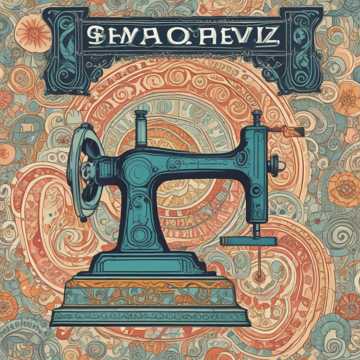Introduction
On September 10, 1846, American inventor Elias Howe secured a patent for his groundbreaking lockstitch sewing machine. This invention would go on to revolutionize the textile industry and transform domestic life around the world.
The Inventor Behind the Needle
Elias Howe was born in Spencer, Massachusetts, in 1819. A mechanically inclined individual from a young age, Howe’s journey to inventing the sewing machine was paved with both hardship and determination.
Key Features of Howe’s Sewing Machine
- Used a lockstitch mechanism
- Incorporated an eye-pointed needle
- Featured a shuttle to form the lock stitch
- Included a feed mechanism to move the cloth
The Impact on Industry and Home Life
Howe’s invention had far-reaching consequences:
- Increased productivity in textile manufacturing
- Reduced the cost of clothing production
- Alleviated the burden of hand-sewing in homes
- Spurred further innovations in the sewing machine industry
The Patent Battle
Despite his groundbreaking invention, Howe faced numerous challenges:
- Initial skepticism from the public
- Financial struggles during development
- Legal battles to defend his patent rights
Legacy of the Sewing Machine
The sewing machine’s impact continues to be felt today:
- Modern clothing manufacturing still relies on its principles
- Home sewing remains a popular hobby and practical skill
- The invention paved the way for other automated textile processes
Conclusion
Elias Howe’s sewing machine patent on September 10, 1846, marked a pivotal moment in industrial and domestic history. Its effects rippled through society, changing how we produce clothing and approach household tasks.
Did you know someone in your family who used an early sewing machine? Share your stories in the comments below!

